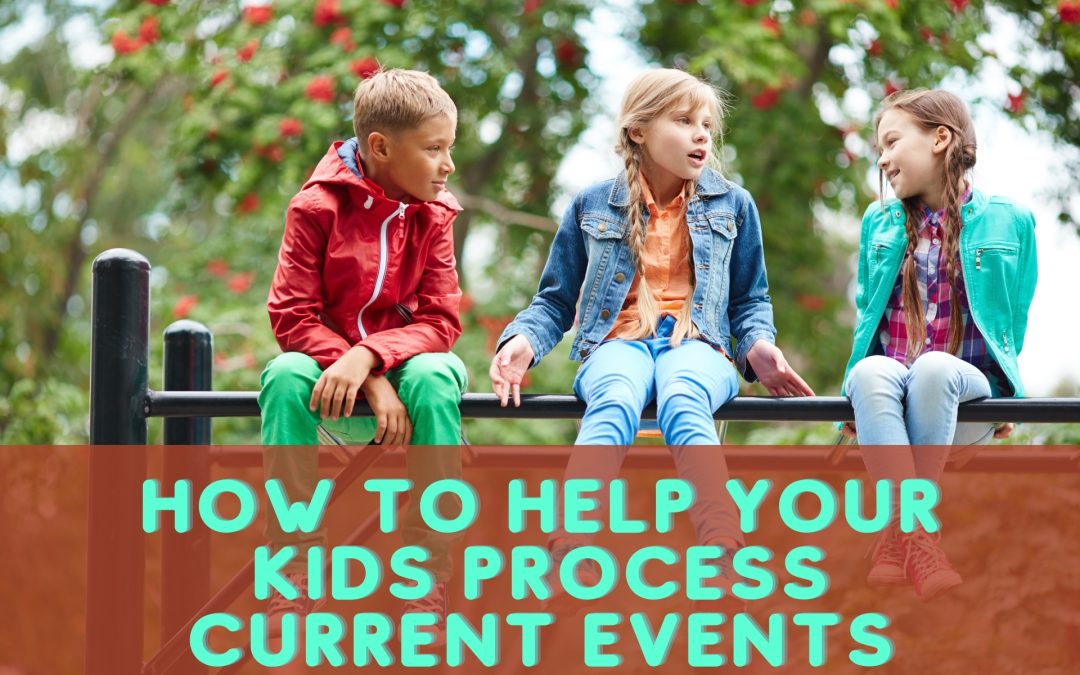There is a lot going on in the world today. In the age of social media, the news is at our fingertips and oftentimes easy for children to access as well. If your child is asking you to explain recent events that you’re nervous to talk to them about, the tips below may help.
Use Different Tactics if They Are Under Seven
Children who are younger than seven years old haven’t learned to fully grasp concepts like violence and death, and experts say it is best to keep most things under wraps. If your child does hear about a scary event and brings it up, keep the explanation simple, and avoid sharing too many details if they aren’t necessary.
You can use phrases like “sometimes people make bad decisions but we are all safe” or “the thing you heard about happened very far away so we’re all going to be okay.” Emphasize the fact that you are all together and safe. Limit the use of smart devices in children this age so they don’t come across upsetting stories without your consent.
Keep Things Simple
If your child is over seven years old, they are beginning to process emotions more thoroughly and increase their maturity. Still, the level of detail you use to explain current events to your child will depend on their level of maturity and how they handle sad or bad news. If your child is more sensitive than most, keep them away from TV news and unmonitored screen time. Repetitive stories and images can make these occurrences feel like they are close to home and more dangerous than they really are to your child.
If you feel your child is ready to talk about the news or a specific event, approach the topic slowly. Don’t introduce any gory details that your child doesn’t bring up themselves. Make sure they know they can ask you questions and bring up the topic as many times as they need to process it fully.
If you find yourself in a position where you need to explain things like prejudice, bias, or civil unrest, be careful about how you explain your own moral beliefs. Don’t make generalizations because your child likely doesn’t have the background information that you do. Asking them how they feel about the situation will help you get an idea of what they have learned from friends or online.
Offer Reassurance
Whether your child is seven or seventeen, make sure they know they are loved and that you are doing everything in your power to keep them safe. Explain to them the safety measures they can take to avoid being involved in scary scenarios and how unlikely they are to happen. Unless there is immediate action you and your family need to take, giving your child reason to worry about something not likely to happen won’t do anyone any good.
HomeschoolFacts.com has a complete list of support groups to help support you in your homeschooling endeavors and connect with homeschoolers near you. You can search the list of support groups here: https://www.homeschoolfacts.com/homeschool-support-groups.html
